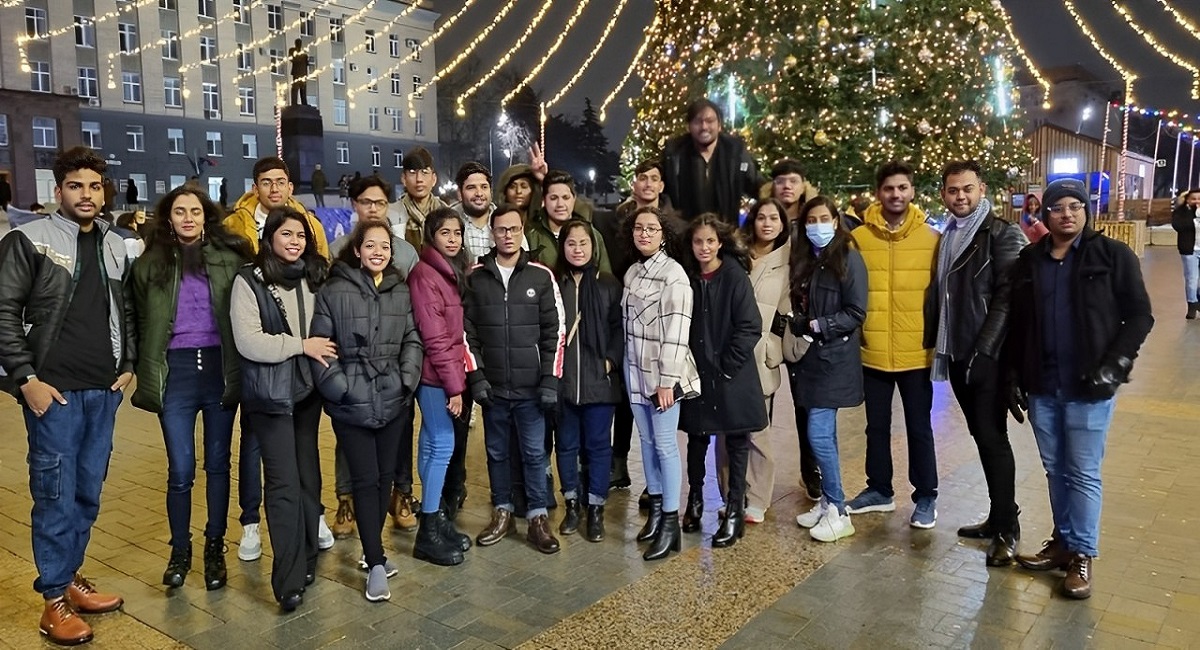RUSSIAN LANGUAGE
Why Study Russian?
Russian is spoken by around 280 million individuals, placing it alongside English and Chinese as one of the three primary global languages. More than a
quarter of the world's academic publications are in Russian. Following the Cold War's conclusion, Russia has welcomed international businesses, banking, mass media,
culture, and entertainment, spurring interest in learning the Russian language.
Each year, thousands of Russians visit the United States for work and leisure, while many
more have settled there.
Russia remains a significant player in international politics, and experience indicates that the need for foreign specialists proficient in the
Russian language continues to rise
While the dissolution of the Soviet Union might seem to reduce the incentive to learn Russian, the country remains a treasure trove of literature, drama, music, and culture. Moreover, the Russian language still serves as a vital means of communication with the former Soviet republics, at least until their respective languages become more prevalent here.


Here are some compelling reasons to learn Russian:
Foreigners are increasingly motivated to learn Russian due to the business prospects in Russia. The country's reintegration into the global economy has revealed a significant and largely untapped market for Western products and services. With its educated labor force and abundant natural resources, the potential for business ventures in the region is poised to grow. More than 300 American companies have established operations in Russia, while Western European firms are investing in the region at an even higher pace.
Government, politics, and international relations. Russia remains pivotal in global affairs, offering numerous career paths in governmental and non-governmental organizations for those proficient in the Russian language. The significant transformations in Russian government and society that started with the collapse of communism present an intriguing opportunity for Russian language students to explore a country undergoing profound change.
Russia's geographical location at the crossroads of Europe and Asia, along with its distinctive history, has created a rich and intricate cultural landscape. Today, there are significantly more opportunities than ever to visit and immerse oneself in this vibrant society. Learning the Russian language provides access to the exploration of the nation’s profound heritage in literature, art, and music.
Each course focuses on communicative methods, merging the learning of everyday expressions with a comprehensive and structured approach to grammar. This is crucial for mastering a language such as Russian, which features an inflectional system and flexible word order – aspects that determine meaning through word endings and positioning.
Providing students with the linguistic means to express themselves in everyday situations through ongoing training of communicative skills and models is one of the most important principles. This enables students to achieve their own communicative objectives.
We teach six levels (beginner to intermediate) of Russian in our group classes all year long, as well as eight levels during the busy summer months (with the addition of upper-intermediate and advanced classes). We have modified the European Language Portfolio's structure for compatibility reasons. Based on our experience teaching students who come through our school, the average lesson numbers required to complete each level are calculated. Understudies enlisting for a balanced course will require less chance to pass starting with one level then onto the next.

